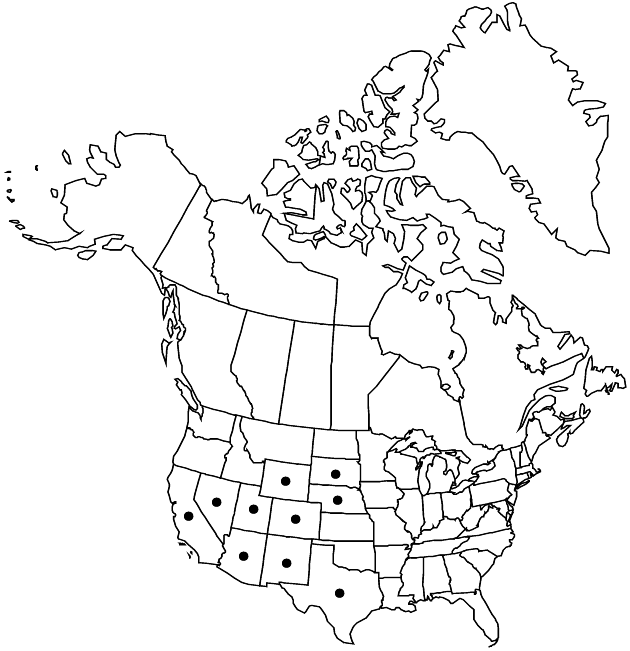Difference between revisions of "Senecio spartioides"
Fl. N. Amer. 2: 438. 1843.
imported>Volume Importer |
imported>Volume Importer |
||
| Line 75: | Line 75: | ||
|publication year=1843 | |publication year=1843 | ||
|special status=Endemic | |special status=Endemic | ||
| − | |source xml=https:// | + | |source xml=https://bitbucket.org/aafc-mbb/fna-data-curation/src/2e0870ddd59836b60bcf96646a41e87ea5a5943a/coarse_grained_fna_xml/V19-20-21/V20_1243.xml |
|tribe=Asteraceae tribe Senecioneae | |tribe=Asteraceae tribe Senecioneae | ||
|genus=Senecio | |genus=Senecio | ||
Latest revision as of 20:59, 5 November 2020
Subshrubs, 20–120+ cm (taproots forming woody crowns). Herbage usually glabrous, sometimes sparsely, unevenly hairy. Stems usually multiple (branching and arching upward). Leaves evenly distributed (proximal often smaller); sessile or obscurely petiolate; blades narrowly linear to filiform (or parted into linear-filiform lobes), 5–10 cm × 1–6 mm, bases ± linear, ultimate margins entire. Heads 10–20(–60) in compound corymbiform arrays (involucres cylindric or narrowly campanulate, 3–6 mm diam.). Calyculi 0 or of 1–3+ (minute, inconspicuous) bractlets. Phyllaries usually ± 8, sometimes ± 13, (5–)6–9(–10) mm, tips green or minutely black. Ray florets ± 5 (± 13); corolla laminae 8–12 mm. Cypselae usually hirtellous, sometimes glabrous. 2n = 40.
Phenology: Flowering summer–fall.
Habitat: Open, dry disturbed sites, especially stream banks and hillsides
Elevation: 1000–3500 m
Distribution

Ariz., Calif., Colo., Nebr., Nev., N.Mex., S.Dak., Tex., Utah, Wyo.
Discussion
Plants with the leaves parted into lobes that are seldom more than 1 mm wide have been recognized as Senecio spartioides var. multicapitatus (or as S. multicapitatus); expression of the character is inconsistent throughout the range and recognition of the two entities is all but impossible to maintain.
Senecio spartioides apparently hybridizes with S. eremophilus in Garfield County, Utah, and perhaps elsewhere (cf., Holmgren, Reveal, and LaFrance 3463, BRY, KSC, NY). The name Senecio toiyabensis rests upon materials that suggest introgression with S. fremontii. Some specimens usually referred to 41. S. pattersonensis suggest introgression with S. spartioides.
Selected References
None.